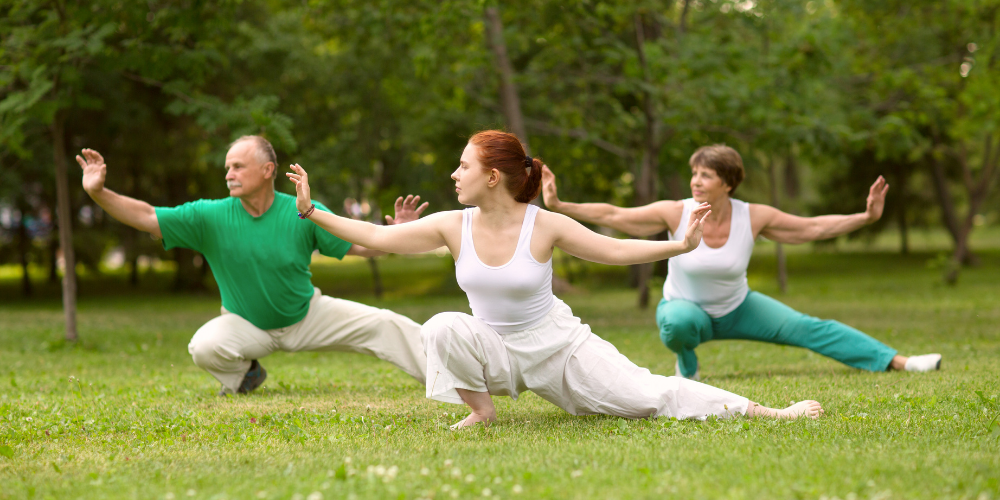Is it Stress, Anxiety, or an Anxiety Disorder? Here’s How to Tell the Difference.
It’s been a hectic year. In the past 12 months, COVID-19 has completely upended our lives. The pandemic has changed the way we work, live, and socialize. We’ve suffered from devastating loss, financial hardship, and the trauma of long-term uncertainty. It should come as no surprise that 19% of adults in the United States think their mental health is worse now than it was a year ago (APA, 2020). Among Gen X and Gen Z, these figures are even higher - 21% and 34%, respectively (APA, 2020).
In this moment, it’s vitally important that we understand what mental health challenges we’re facing, how to prevent them from becoming bigger issues, and when to seek help. Here, we examine the differences between stress, anxiety, and anxiety disorders.
What is stress?
Stress is a physiological response to an external trigger, like a job interview or first date. Symptoms of stress include rapid heartbeat, fatigue, upset stomach, lack of concentration, and faster breathing (Pattee, 2020). An individual may experience acute stress, which is short-term, or chronic stress. Either way, stress generally recedes when the triggering event ends (APA, 2019).
Is stress bad?
The short answer is not always. Our stress response is evolutionary; it’s designed to help us fight off or flee from danger by increasing our adrenaline and cortisol levels (Pattee, 2020). Optimal amounts of stress - neither too high or low - can improve our performance in important situations, like when taking a test (Savin, 2021).
However, when stress is long-term, it can become a threat to our physical and emotional wellbeing. You can learn more about the dangers of chronic stress here. Stress can also transform into anxiety, which may have a negative effect on your everyday life.
What is anxiety?
The symptoms of stress and anxiety are often the same. But, while stress is a reaction to a trigger or threat, anxiety occurs when there is no active stressor (Pattee, 2020). As Pattee (2020) explains, “the blood is flowing, the adrenaline is pumping, your body is in a state of fight or flight — but there is no predator in the bushes.”
What is an anxiety disorder?
Experts estimate that 31% of adults in the United States will experience an anxiety disorder during their life (NIMH, 2017). However, not all individuals who suffer from anxiety have an anxiety disorder. The duration and intensity of anxious feelings distinguish anxiety disorders from anxiety. According to the American Psychological Association (2019), anxiety disorders are characterized by anxious feelings that last for several months and which negatively affect a person’s ability to conduct their everyday life.
When is it time to seek help?
Is chronic stress or anxiety causing you emotional distress or interfering with your relationships, job, or education? Consider talking to your doctor. Substance abuse, as well as drastic changes in your eating and sleeping habits, may also be signs that you need further assistance to manage your anxiety (Barrell, 2020).
One common method used to help individuals control their anxiety is cognitive behavioral therapy (CBT) (Barrell, 2020). You can find additional mental health resources here.
If you are thinking about self-harm or experiencing suicidal thoughts, or you know someone who is, call the National Suicide Prevention Lifeline toll-free at 1-800-273-8255 now.
How can you stop stress from becoming something more?
If left unchecked, stress can become something more serious, including anxiety. Luckily, there are some simple actions you can take to get your stress under control.
Exercise: You’ve probably heard it before, but here’s your reminder: physical exercise is a stress-buster (Lindberg, 2021). Try running, yoga, weightlifting, or Tai Chi to clear your mind.
Meditate: Studies suggest that mindfulness meditation can reduce stressful thoughts. Whether you’re new to meditation or a seasoned expert, Versus can make a great addition to your meditation practice. Our Stress Exercises can help you quiet repetitive thoughts and teach you what an optimally relaxed state feels like. Learn more here.
Let it out: Expressing your stressful thoughts or feelings can reduce their power over you. Try keeping a journal or schedule a recurring meeting with a friend or professional to discuss how you’re feeling (NIMH, 2020).
Sleep on it: Stick to a sleep routine. If you need a little support, we can get you on track. Try our Stress Exercises before bed - they can help you quiet the mental noise that keeps you awake at night.
Think before you drink (and eat): Limiting your intake of coffee and alcohol, as well as focusing on having regular, nutrient-dense meals, can help you avoid the physiological sensations associated with stress (Pattee, 2020).
Know someone in need of some stress relief? Share this story with them today.
References
American Psychological Association (APA) (2019). What’s the difference between stress and anxiety?. American Psychological Association, 21 September 2019. Retrieved 22 February 2021 from https://www.apa.org/topics/stress/anxiety-difference
American Psychological Association (APA) (2020). Stress in America 2020 Survey Signals a Growing National Mental Health Crisis. American Psychological Association, 20 October 2020. Retrieved 22 February 2021 from https://www.apa.org/news/press/releases/2020/10/stress-mental-health-crisis
Barrell, A. (2020). Stress vs. anxiety: How to tell the difference. Medical News Today, 24 April 2020. Retrieved 22 February 2021 from https://www.medicalnewstoday.com/articles/stress-vs-anxiety
Healthline (2020). Stress and Anxiety. Healthline, 29 March 2020. Retrieved 22 February 2021 from https://www.healthline.com/health/stress-and-anxiety
Lindberg, S. (2021). Anxiety: Does Everyone Have It at Some Point?. Healthline, 8 Jan. 2021. Retrieved 22 February 2021 from https://www.healthline.com/health/anxiety/does-everyone-have-anxiety
National Institute of Mental Health (NIMH) (2017). Any Anxiety Disorder. National Institute of Mental Health, Nov. 2017. Retrieved 22 February 2021 https://www.nimh.nih.gov/health/statistics/any-anxiety-disorder.shtml
National Institute of Mental Health (NIMH) (2020). I’m So Stressed Out! Fact Sheet. National Institute of Mental Health, 2020. Retrieved 22 February 2021 from https://www.nimh.nih.gov/health/publications/so-stressed-out-fact-sheet/index.shtml
Pattee, Emma (2020). The Difference Between Worry, Stress and Anxiety. New York Times, 26 Feb. 2020. Retrieved 22 February 2021 from https://www.nytimes.com/2020/02/26/smarter-living/the-difference-between-worry-stress-and-anxiety.html
Savin, Jennifer (2021). How to tell the difference between having anxiety and being a worrier. Cosmopolitan, 18 Jan. 2021. Retrieved 22 February 2021 from https://www.cosmopolitan.com/uk/body/health/a35242054/anxiety-symptoms-signs/
Please note: The Versus system is not regulated by the FDA as a medical device. It is intended to promote and encourage healthy lifestyle choices; it is NOT intended for use in the diagnosis of disease or other conditions, or in the cure, mitigation, treatment, or prevention of disease. This article and this product are not substitutes for medical advice and care. If you have any questions or concerns about a medical condition, you are encouraged to consult your physician or other qualified health care provider for specific advice.





